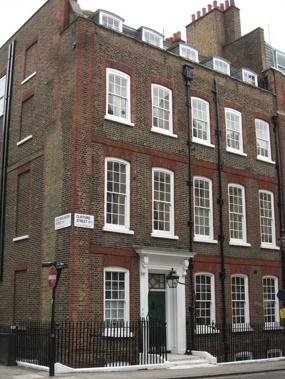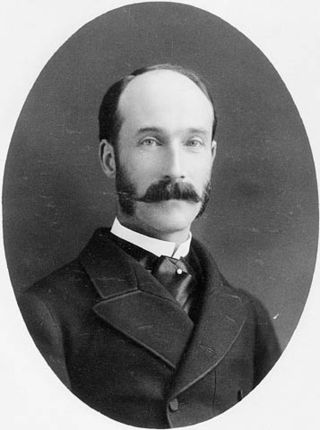See also
Grouped by societal associations, ordered by seniority | |||||
| Unionists, Tories, and/or Conser- vatives |
| ||||
| Whigs and/ or Liberals |
| ||||
| British Armed Forces |
| ||||
| Educa- tional background |
| ||||
| Arts and sciences |
| ||||
| City of London |
| ||||
| National connections |
| ||||
The National Union was a short-lived political London gentlemen's club founded in 1887. [1] It was aligned to the recently created Liberal Unionist party which had been created by the Home Rule issue. By 1890, it was reported by Whittakers Almanack to have around 1,200 members, but like the similar Unionist Club, it had difficulties establishing a membership base. Its history proved to be short, and it was disbanded before 1900. [2]

The Drones Club is a recurring fictional location in the stories of British humorist P. G. Wodehouse. It is a gentlemen's club in London. Many of Wodehouse's Jeeves and Blandings Castle stories feature the club or its members.
The Liberal Unionist Party was a British political party that was formed in 1886 by a faction that broke away from the Liberal Party. Led by Lord Hartington and Joseph Chamberlain, the party established a political alliance with the Conservative Party in opposition to Irish Home Rule. The two parties formed the ten-year-long coalition Unionist Government 1895–1905 but kept separate political funds and their own party organisations until a complete merger between the Liberal Unionist and the Conservative parties was agreed to in May 1912.

Henry Charles Keith Petty-Fitzmaurice, 5th Marquess of Lansdowne,, was a British statesman who served successively as Governor General of Canada, Viceroy of India, Secretary of State for War and Secretary of State for Foreign Affairs.

A gentlemen's club is a private social club of a type originally established by old boy networks, typically from Britain's upper classes from the 17th century onwards.

Walter Hume Long, 1st Viscount Long,, was a British Unionist politician. In a political career spanning over 40 years, he held office as President of the Board of Agriculture, President of the Local Government Board, Chief Secretary for Ireland, Secretary of State for the Colonies and First Lord of the Admiralty. He is also remembered for his links with Irish Unionism, and served as Leader of the Irish Unionist Party in the House of Commons from 1906 to 1910.

The Irish Unionist Alliance (IUA), also known as the Irish Unionist Party, Irish Unionists or simply the Unionists, was a unionist political party founded in Ireland in 1891 from a merger of the Irish Conservative Party and the Irish Loyal and Patriotic Union (ILPU) to oppose plans for home rule for Ireland within the United Kingdom of Great Britain and Ireland. The party was led for much of its existence by Colonel Edward James Saunderson and later by St John Brodrick, 1st Earl of Midleton. In total, eighty-six members of the House of Lords affiliated themselves with the Irish Unionist Alliance, although its broader membership among Irish voters outside Ulster was relatively small.

The White Conduit Club (WCC) was a cricket club based on the northern fringes of London that existed from about 1782 until 1788. Although short-lived, it had considerable significance in the history of the game, as its members created the first Lord's venue and reorganised themselves as the new Marylebone Cricket Club (MCC).
Cricket, and hence English amateur cricket, probably began in England during the medieval period but the earliest known reference concerns the game being played c.1550 by children on a plot of land at the Royal Grammar School, Guildford, Surrey. It is generally believed that cricket was originally a children's game as it is not until the beginning of the 17th century that reports can be found of adult participation.
The Unionist Club was a short-lived London gentlemen's club, now dissolved, which was established in 1886, and had wound up by 1892. For the last four years of its existence, it had a clubhouse at 66-68 Pall Mall.
The Beaconsfield Club was a London gentlemen's club, now dissolved, which was established in 1880 and was disbanded circa 1887–8. For most of its existence, between 1880 and 1887, it occupied 66-68 Pall Mall, London.
The Junior Constitutional Club was a political London gentlemen's club founded in 1887, and located at 101 Piccadilly. It was aligned to the Conservative party, with members having to pledge support. Heavy over-subscription for the Constitutional Club which had opened in 1883 led to the creation of a further mass-membership Conservative club.
The Primrose Club was a short-lived political London gentlemen's club founded in 1886 and located at 4-5 Park Place, St. James's. It was aligned to the Conservative party, with members having to pledge support. It was launched as a bid to combine the explosion of the popularity of clubs in London at the end of the nineteenth century with the phenomenal success of the Conservative-aligned Primrose League.
The National Conservative Club was a short-lived political London gentlemen's club founded in 1886. It was aligned to the Conservative party, with members having to pledge support. It was launched as a rival to the mass-membership National Liberal Club of the opposing Liberal party, but proved highly unsuccessful. According to Whitaker's Almanack, it had 2,500 members in 1890, but at a third of the National Liberal Club's membership, this was less than expected, and the NCC closed before the end of the century.
The Palace Club was a short-lived political London gentlemen's club founded in 1882. It was aligned to the Conservative party, with members having to pledge support. Unlike many of the better-established clubs like the Carlton, or some of the new clubs like the Constitutional, it never acquired a sizable membership; according to Whittakers Almanack it had only 220 members in 1890, and 250 by 1900. It closed within a decade.
The Junior Naval and Military Club was a short-lived London gentlemen's club, which existed between 1870 and 1879.

The Public Schools Club is a former London gentlemen's club.

Crockford's, the popular name for William Crockford's St James's Club was a London gentlemen's club, now dissolved. It was established in 1823, closed in 1845, re-founded in 1928 and closed in 1970. One of London's older clubs, it was centred on gambling and maintained a somewhat raffish and raucous reputation. It was founded by William Crockford who employed Benjamin Wyatt and Philip Wyatt to construct the city's most opulent palace of gentlemanly pleasure, which opened in November 1827. and he employed two of London's finest chefs of the time, Louis Eustache Ude and then Charles Elmé Francatelli to feed its members, food and drink being supplied free after midnight.
Tankerville Chamberlayne was a landowner in Hampshire and a member of parliament, serving the Southampton constituency three times, as an Independent and Conservative. He was deprived of his seat after the 1895 general election because of the indiscretion of one of his campaign workers and his having headed a procession which raised suspicion of having supplied beer to supporters. He subsequently raised the question of false electioneering statements in Parliament.
Through the Napoleonic Wars, county cricket virtually died as cricket was impacted by losses of investment and manpower.